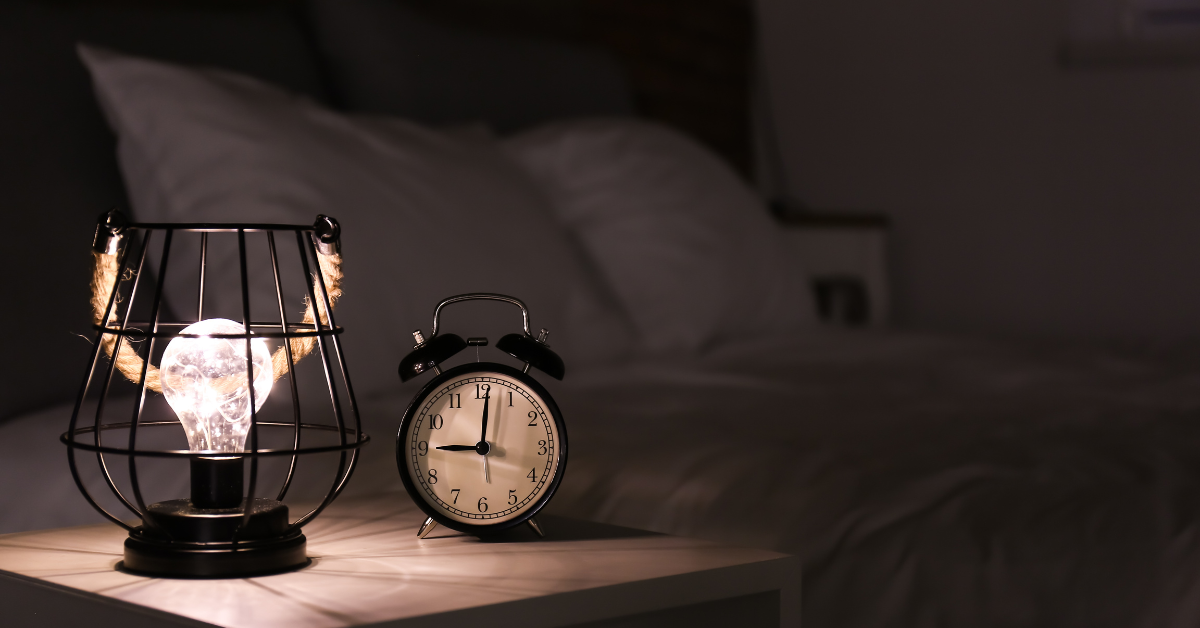157. When God Forgives What You Can’t Forget with Brittany Poppe

In this episode, Carrie continues the New Year’s series focused on New Year’s desires and what we truly want for 2025. Joining her is Brittany Poppe, a Christian Abortion Recovery Leader and Pro-Life Speaker. They explore the power of accepting God’s forgiveness, releasing past regrets, and finding healing from trauma.
Episode Highlights:
- Understanding God’s forgiveness and letting go of past mistakes
- Brittany’s personal story of loss, trauma, and healing
- How secret struggles and unprocessed grief can impact mental health
- The importance of community and open conversations in the church
- Recognizing and addressing the emotional impact of abortion on both women and men
Episode Summary:
As we dive into our New Year’s series, we’re talking about desires for 2025, and I wanted to bring on someone to discuss an essential aspect of healing – accepting God’s forgiveness and letting go of past regrets.
Today, I’m joined by Brittany Poppe, host of Does God Forgive Abortion? Brittany opens up about her personal journey of healing after having an abortion and struggling with guilt, grief, and shame.
Brittany shares:
“I grew up in a loving Christian home, but after losing my dad, I turned away from my faith. At 17, I found myself pregnant, and in fear of what others would think, I made the decision to have an abortion.”
This decision led to years of emotional turmoil, as Brittany wrestled with feelings of separation from God, trying to right her wrongs through repeated repentance.
“I tried to be the perfect Christian, but no amount of ‘doing good’ could erase the guilt,” Brittany reflects.
Through time, prayer, and immersing herself in God’s Word, Brittany found healing, realizing that God’s forgiveness is not about repenting a certain number of times but embracing His love and grace.
Brittany discusses the grief she felt—something often hidden or dismissed by society. “Grief over abortion is real, and many women carry this ‘forbidden grief’—a grief society tells us we shouldn’t have.”
She encourages women to share their stories, as healing begins when we accept our past and trust in God’s forgiveness.
Brittany’s journey is one of profound healing and transformation. To hear more about her powerful story and the grace she’s found in letting go of shame, listen to the full episode. You’ll find hope and insight for your own healing journey.
Related Links and Resources
brittanypoppe.com
Does God Forgive Abortion Podcast
Explore Related Episode:
Transcript
Carrie: As you all know, we’ve been talking in our New Year’s series about New Year’s desires, what we really want for 2025. And I thought I would bring on the show someone to talk with us about accepting God’s forgiveness and about letting go of the past, things that you may be regretting or holding onto or really struggling with.
This is Brittany Poppe. Welcome to the show.
Brittany: Thank you so much for having me, Terri.
Carrie: And Brittany has a podcast called Does God Forgive Abortion? And I wanted to hear from you kind of a little bit about your story and your journey, just how you got to this point.
Brittany: I grew up in a loving Christian home where faith was emphasized and I knew That every single human being is created by God and loved by God.
And so I had this foundation where I valued life and the sanctity of life. However, when I was a teenager, I lost my dad. He had Parkinson’s disease and ended up passing away. In that trauma started to kind of move away from my faith and I started to kind of live a secret life. And in the midst of doing that, I found out at the age of 17 that I was pregnant and.
I knew because of how I had been raised, that was something that was definitely going to be frowned upon. I was very afraid of what my church was going to think of me, of what my mom was going to think. I knew that my double life as I knew it was over. And so I made the unfortunate decision to have an abortion and what I thought was going to solve all of my problems and make my life better, allow me to continue the life that I was wanting to live, unfortunately did quite the opposite.
It actually really affected me in a negative way. And I lived for the next 10 or so years. Really in kind of a wilderness feeling like I was far from God. Didn’t know how I could ever come back to my relationship with him. I would repeatedly repent thinking that I had to do it a certain number of times before it would finally stick.
Also just feeling like I had to say yes to everything and try to be the best person, as perfect as I could be. Because I was trying to figure out how I could write this wrong that I had done because there’s really no way to undo having an abortion. And so
Carrie: It was about on your podcast, how your mom didn’t even know you were able to get the abortion without consent, I guess, based on your age in your state that probably was really hard to not have someone to bounce this off of or.
An adult to talk through this experience with
Brittany: yes, it was. In fact, I did end up confiding in my mom about two months later. She had kind of found out about my double life anyway, and I just broke down and ended up telling her about what I had done because it was such a heavy weight to carry on my own.
It was a really big secret that I had to walk around with every day. Even though I had told her, it still was a secret for about a decade after, and that was something that really weighed heavily on me every day. I think we carry trauma with us, whether we know it or not, and it can really negatively affect us in so many ways when we’re not healing from it.
Carrie: Yeah, for sure. And this process that you went through of praying, trying to, I guess, be the good Christian or right the wrongs, I see a lot of people who do that who have deep regret for past choices that they made. It could be an addiction and some things that they did while they were in active addiction.
It could be they were involved in a negative relationship. It could be an abortion and. We keep these secret sins hidden a lot of times in the church. We don’t talk about it. It’s like, okay, well, I have this new life now. What was that process like for you of coming towards not only just healing from the sin aspect of it and receiving the forgiveness, but then also being able to speak about it?
Brittany: I truly believe that God placed it on my heart to start sharing my story. I think that the stat that’s shared most often is one in four women will have had at least one abortion by the age of 45. When we think about how many women are walking around having made this decision, that’s a lot of people. We likely know someone, but we don’t know that’s a part of their story.
And out of that group of women, many, many, many of them struggle negatively. And so I firmly believe that God told me that I was supposed to start sharing my story. But he started to kind of work on me before I was really healed from it. And I definitely think it’s hard to help others heal from something when you haven’t healed from it yourself.
And so really just kind of digging into the word and talking with other believers who’d been through it too. And just kind of looking at those places in the word that show that we are all covered by the blood of Jesus. There isn’t a specific sin in the Bible that’s worse than another sin. We know that God measures all sin the same.
And so I really just had to focus on that instead of trying to separate my abortion as the worst thing someone could ever do, recognize that all sin disappoints God, but God is able to forgive all sin once we come to repentance. And there’s nothing in the Bible that says we have to repent 900 times before he finally listens.
We know that God hears all of our prayers. I mean, He even bottles up every single tear we shed. And so, really just having to, it was really a lot of just working and immersing myself in His Word.
Carrie: Yeah, okay, just reading those scriptures about forgiveness, meditating on them, saying these scriptures are for me.
Not just for everyone else that I know, because that’s what we usually do. It’s like, oh yeah, I know God loves that other person over there, or God loves my family or my friends, but I don’t really feel like God loves me, instead of recognizing that the scriptures that talk about confession and repentance and forgiveness are for all of us.
Yes. And I think that we have a tendency to grade sins, like, oh, a lie is not as bad as this. But like you said. All sin disappoints the heart of God, and we need to be in a conscious state of recognizing our sin and how that’s impacted God on the one hand, and then also recognizing if we are Christians, we are under the blood of Jesus.
The cross was the finished work. We don’t have to continue to hold on to these things. And bring them up in our own minds over and over and over again, we can say that’s forgiven and I’m moving forward. Amen. What was the process of recognizing how this experience of the abortion impacted your mental health?
Did you recognize that it was the abortion or did you just think like, Oh, I’m just not feeling well, or I’m feeling depressed or anxious or having some re experiencing symptoms and don’t know why?
Brittany: I think early on, I definitely didn’t connect it to the abortion. When I was in my early 20s, I really struggled with anger.
I actually ended up going to see a therapist for help because I just would fly off the handle at the smallest things. And I knew I had a problem And my mom even tried to tell me that I should talk to my therapist about my abortion and tell her about it. And I was just like, oh, no, there’s no reason to bring that up.
That’s not something that I need help with right now. I need help with my anger. But now that I can look back, likely that unresolved grief and shame. Was probably adding to why I was so angry because I wasn’t an angry person before my abortion. I definitely struggled for years without realizing what the root of the problem was.
But I think I started to realize that my abortion was the root of the problem when I had my living children. Because I felt so much guilt. That I had living children, that I got to have this precious gift that I had once given up. And so, I felt so shameful that I got to be a mom when so many others have troubles being mothers.
Women who have, really struggle with infertility issues. And so, that guilt helped me see, okay. This is probably the root of why I’m struggling with X, Y, and Z all of the time.
Carrie: Talk to us about the grief piece. What has that looked like for you?
Brittany: I think so often we’re told when we’re talking about this topic that grief isn’t a part of abortion.
And a lot of women who do feel grief after an abortion are told That maybe they’re not allowed to, or maybe they shouldn’t feel that. It actually has a term called forbidden grief because it is a grief that we feel, but we feel like society has kind of forbidden us from experiencing or healing from that grief.
And so we just kind of stay stuck in that place of shame with really no way out. Cause we’re not moving through those stages of grief and getting towards that acceptance and that repentance. And redemption in Jesus. For me, a lot of my grief was rooted in that guilt and that shame over wishing I could go back and undo the thing that I had done, but knowing I never could.
When I finally started to look at my abortion as the loss of my child is when I really was able to start healing. I was able to give my child an identity and understand that he was created in the image of God and that I did the healing work in digging into God’s word to know where my child is now and know that my child is in heaven with Jesus.
And so. Really just recognizing that and giving myself or really rather accepting the permission from God to miss my child and to grieve him, but also know that scripturally I will be able to see him someday. That’s really kind of what’s been pivotal for me and my own healing and other women I’ve gotten to speak with as well.
Carrie: Yeah, I like what you said there about the forbidden grief because So much when I think about grief and loss, if we lose a family member, for example, there’s a community around us that’s also grieving the loss. But if you have this secret loss that no one knows about, or Maybe they do know about, but they say, well, that was your choice.
So then you’re not allowed to have, like you said, feelings about that. I think it’s important that we talk about this because I know from processing with women, I’m thinking about one woman in particular that I worked with. I probably worked with her for years before she ever told me about her abortion.
And it was when she was very young as well. And obviously, she would not have brought that up if it was not still impacting her. So there are so many women that go through these types of things. And I also want to say, too, that it affects men as well. Is, have you heard from fathers?
Brittany: Yeah, so I think a lot of women who struggle feel forgotten about but I think the fathers are Forgotten about maybe almost even more and I don’t say that in an offense to women who are struggling at all But I think that for so many reasons men One, aren’t given the decision in the matter.
So they’re kind of, a lot of them feel really powerless because they’re not able to step in and say, well, no, I want my child. There’s really no legal premise there for them to be able to have their child and raise their child in that situation and prevent their partner from choosing abortion, but also just like the grief.
I think men hide their grief even more. And so it looks sweet if they. Admit that they’re struggling or admit that they are grieving the loss of a child they didn’t get to meet through abortion. And so, yes, men do struggle with the loss of their children to abortion for many reasons. And I do see an uprising of maybe more resources for them or more men kind of speaking out about it and offering support to other men who may not be so ready to kind of speak out, but they need that help.
Carrie: This is shifting gears. Quite a bit, but another thing I wanted to ask you about I know that this is a concern for Christians And I work with who are dating and looking for a Christian spouse They’re concerned about telling that other person about their past Was that a challenge for you when you met your husband talking with him about this?
Brittany: It was a challenge, but I kind of approached it a little differently. Many, many, many women will enter into marriages without telling their husbands about their abortion and it will remain the secret in their marriage. And it really hurts their marriage because they’re. So afraid if their husband is going to find out that they’re going to divorce them or think differently of them.
When I approached that with my husband, we hadn’t been dating very long. I actually felt like I had to tell him before things got serious because I almost felt like I needed to give him a way out. I knew his background. I knew that abortion wasn’t something that he supported, but I also know when I told him about it, he met me with so much compassion and grace and just said, that was something you did in the past and thank you for telling me that, but it doesn’t change how I feel about you now.
I would definitely encourage women to tell. Their spouses, hopefully before marriage, but if that hasn’t happened, just really pray and discern when God wants you to divulge the information, because really, even if you don’t look at it as the problem into why maybe you’re having some issues, it really could be leading to some of those feelings and those issues.
Carrie: And I think, like, what you were saying about having your own children and how that essentially opened up this wound again that you recognize wasn’t fully healed, when we go through various things in our life, we respond differently based on our past experience, whereas something you think, oh, that wasn’t really bothering me, But then you have another stressor come up or another trauma, and it ties into some of those past things, the same thing can happen, sexual abuse, for example, it is important for somebody that you feel like if you’re headed in the direction of marriage, that they may need to know some of these key things about you.
And I did an episode not too long back on talking to someone, sharing with someone about your OCD and how that may impact you. And obviously, that’s something that people are concerned about talking about as well. But, Do you find that, because I know that you work with individual women who have been through abortion and you also work in, sometimes in group settings, do you find that there is this healing from some of the shame when we’re able to share our story?
Not just share your story, but have someone respond in compassion who has been there and gets it and knows, they’re like, that I can see myself in you.
Brittany: Yes, I think so many of us, not even just in abortion, but with so many other things that we need to heal from, a lot of us tend to want to do it alone because maybe we’re afraid to ask for help, or maybe we don’t want to let those walls down, maybe we’re afraid to trust others.
But honestly, God created us to be in community with other believers. He didn’t want us to do life alone. We’re told to bear with one another, carry each other’s burdens, be there for each other. And the healing can come so much more easily when we are with a group of people who understand what we’ve gone through.
And again, it’s hard to ask for help. It’s hard to be vulnerable. It’s not a fun thing to do. And maybe I shouldn’t have said it comes more easily because it definitely can still be really hard. But knowing that someone else is going through the same thing can really be so much more comforting than sitting alone at home trying to do it on your own.
Carrie: Yeah, absolutely. Is there anything else that you would share with someone who’s listening who’s struggling from a Guilt over a past sin, whether it’s abortion or something else, like what kind of final words of encouragement would you want to give to someone?
Brittany: I think I would just want everyone to know that there is not a single thing that you can do that would separate you from God’s love for you.
When Jesus died on the cross, he said, is finished. And that meant for everything, there’s nowhere in the Bible that says Jesus died on the cross to forgive sins, except blank. So whatever you’re struggling with, just know that it is covered by the blood of Jesus. And so long as you are repentant and surrender to him, he is waiting for open arms for you.
You are not exempt from that love that he has for you.
Carrie: So tell us about your podcast and where people can find you.
Brittany: Like Carrie said, my podcast is called, does God forgive abortion? And that podcast really just serves as a ministry and resource for mostly women who are struggling with the guilt and shame of choosing abortion in the past, but men may find it helpful as well.
And it’s on Apple podcasts, Spotify, pretty much anywhere you listen. Could be a really helpful resource for you in your healing journey. And then I’m also on Instagram My handle is Brittany Poppy. So B R I T T A N Y P O P P E And I would encourage you if you just need Someone to talk to you are free to send me a DM and just know that you’re not alone
Carrie: Yeah, we’ll put the link in there too.
So people that can click on it and that’s incredible. Thank you for sharing your story today
Brittany: Yeah, absolutely. Thank you so much for having me.








